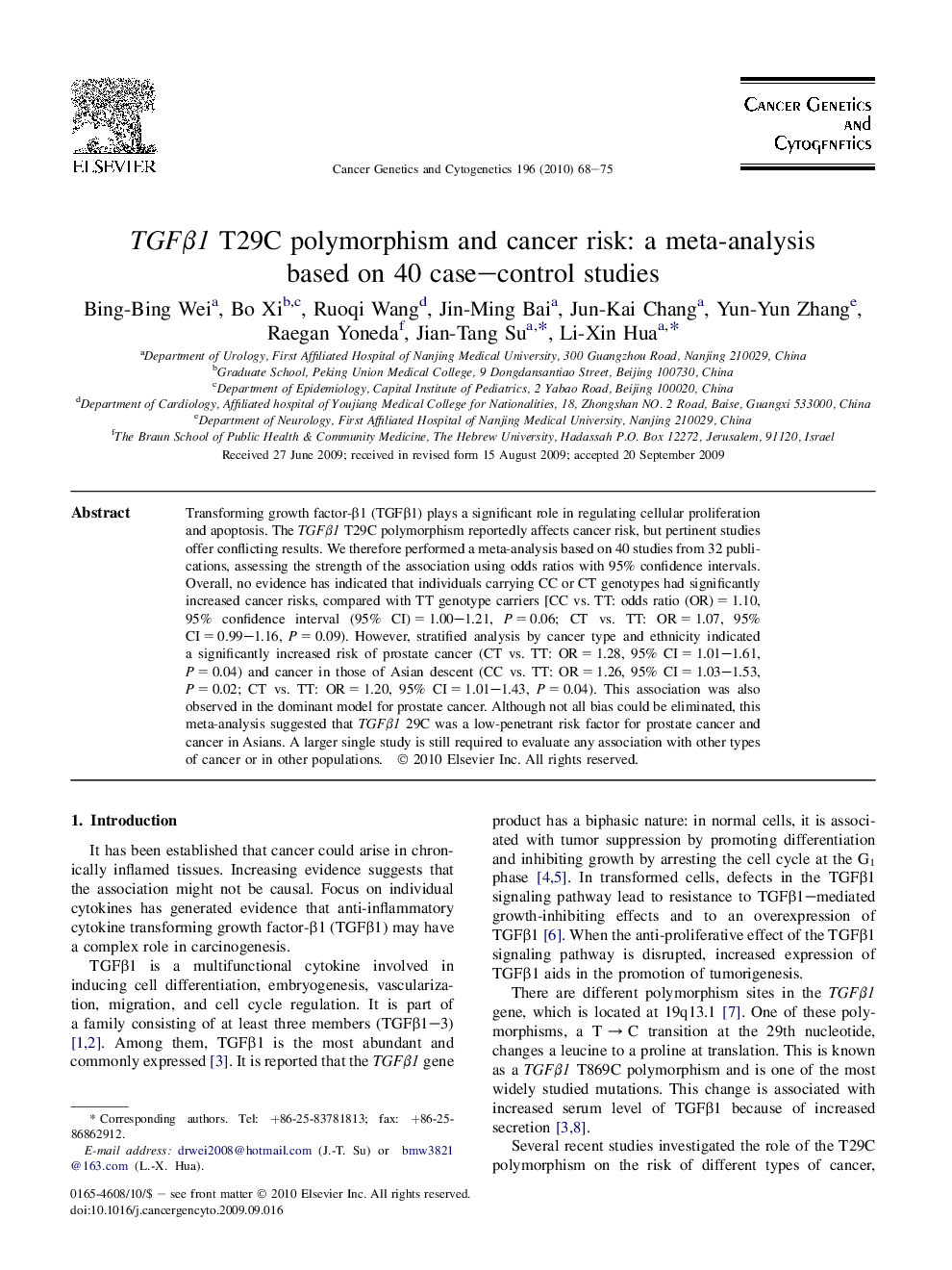| Article ID | Journal | Published Year | Pages | File Type |
|---|---|---|---|---|
| 2110989 | Cancer Genetics and Cytogenetics | 2010 | 8 Pages |
Transforming growth factor-β1 (TGFβ1) plays a significant role in regulating cellular proliferation and apoptosis. The TGFβ1 T29C polymorphism reportedly affects cancer risk, but pertinent studies offer conflicting results. We therefore performed a meta-analysis based on 40 studies from 32 publications, assessing the strength of the association using odds ratios with 95% confidence intervals. Overall, no evidence has indicated that individuals carrying CC or CT genotypes had significantly increased cancer risks, compared with TT genotype carriers [CC vs. TT: odds ratio (OR) = 1.10, 95% confidence interval (95% CI) = 1.00–1.21, P = 0.06; CT vs. TT: OR = 1.07, 95% CI = 0.99–1.16, P = 0.09). However, stratified analysis by cancer type and ethnicity indicated a significantly increased risk of prostate cancer (CT vs. TT: OR = 1.28, 95% CI = 1.01–1.61, P = 0.04) and cancer in those of Asian descent (CC vs. TT: OR = 1.26, 95% CI = 1.03–1.53, P = 0.02; CT vs. TT: OR = 1.20, 95% CI = 1.01–1.43, P = 0.04). This association was also observed in the dominant model for prostate cancer. Although not all bias could be eliminated, this meta-analysis suggested that TGFβ1 29C was a low-penetrant risk factor for prostate cancer and cancer in Asians. A larger single study is still required to evaluate any association with other types of cancer or in other populations.
